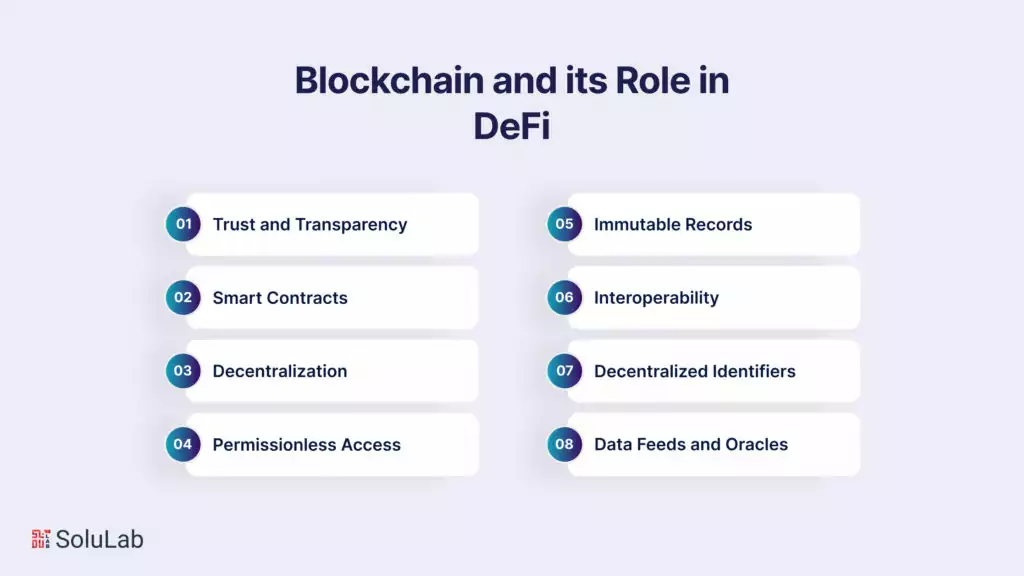The world of finance is witnessing a revolutionary change, thanks to the emergence of Decentralized Finance (DeFi). At the heart of this financial renaissance is blockchain technology, a powerful tool reshaping how we think about and interact with money. In this blog post, we’ll explore the role of blockchain in DeFi and how it’s paving the way for a more accessible, transparent, and efficient financial system.
Understanding DeFi and Blockchain: A Brief Overview
Decentralized Finance, or DeFi, refers to a range of financial services that are accessible on public blockchains, primarily Ethereum. Unlike traditional finance, DeFi is characterized by its open, permissionless nature, enabling anyone with an internet connection to access financial services without the need for intermediaries like banks. Blockchain is the underlying technology making this possible. It’s a distributed ledger that records all transactions across a network of computers, offering unparalleled security and transparency.
The Role of Blockchain in DeFi: Key Features
Immutability
One of the fundamental aspects of blockchain is its immutability. Once a transaction is recorded, it cannot be altered. This feature is crucial in DeFi, ensuring the integrity and trustworthiness of financial transactions.
Transparency and Accessibility
Blockchain’s transparent nature allows for all transactions to be publicly verifiable, fostering a high level of trust among users. Moreover, DeFi platforms are accessible to anyone, breaking down barriers to financial services.
Smart Contracts
Smart contracts are self-executing contracts with the terms of the agreement directly written into code. These are essential in automating DeFi services and ensuring that they run exactly as programmed without downtime, fraud, or interference.
Advantages of Blockchain in DeFi
The integration of blockchain in DeFi offers several advantages
Reduced Costs and Increased Efficiency
By eliminating intermediaries, DeFi reduces transaction costs and speeds up processes.
Inclusivity
DeFi opens the door for unbanked and underbanked populations to access financial services.
Innovation in Financial Products
The flexibility of blockchain allows for the creation of diverse financial products, from stablecoins to yield farming strategies, catering to a wide range of needs.
Challenges and Future Outlook
While blockchain in DeFi offers numerous benefits, there are challenges like scalability, regulatory uncertainty, and security concerns. However, continuous innovation in blockchain technology, such as Layer 2 solutions and enhanced security protocols, are addressing these challenges. The future of DeFi, backed by blockchain, looks promising, potentially reshaping the global financial landscape.
Conclusion
The role of blockchain in DeFi cannot be overstated. It’s the backbone of a new financial ecosystem that’s more inclusive, efficient, and transparent. As we continue to witness the evolution of DeFi, it’s clear that blockchain technology will play a pivotal role in shaping the future of finance. Stay tuned to this exciting journey, as we explore more about how blockchain and DeFi are revolutionizing our financial world.

